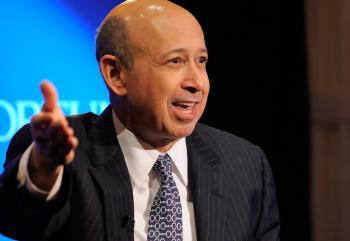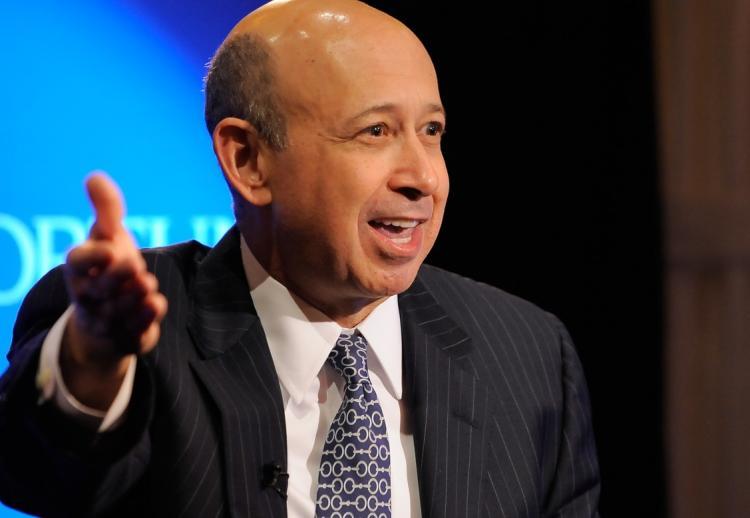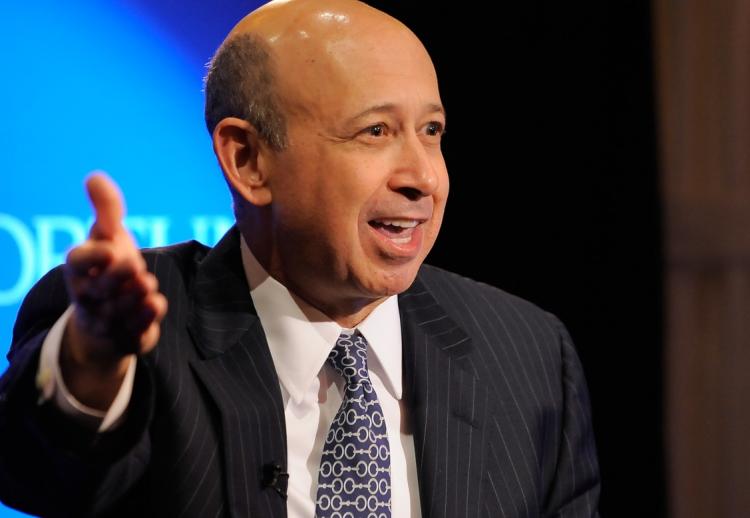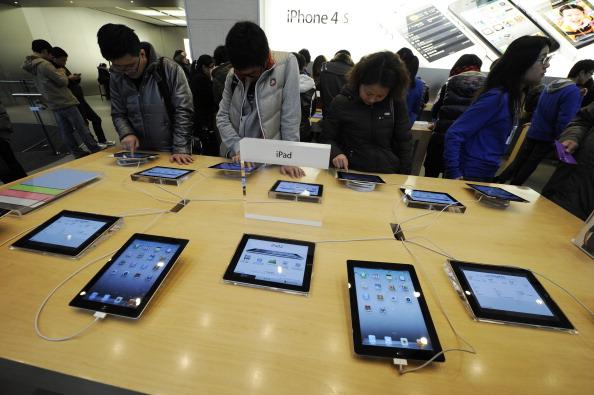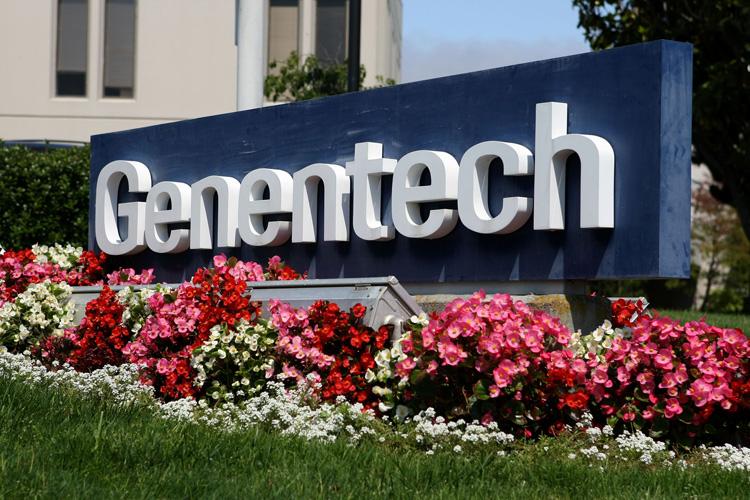The fraudulent investigation of the Goldman Sachs Group Inc. is ricocheting from Wall Street to Europe.
U.K. Prime Minister Gordon Brown is alerting authorities to probe the investment bank regarding its “moral bankruptcy.” Scrutiny from Germany is also to commence following the U.S. Securities and Exchange Commission (SEC) suing the firm for fraud connected with its sales of certain collateralized debt obligations (CDO), which exacerbated the financial crises that impacted markets around the world.
Wall Street’s most profitable firm will be investigated by Britain’s Financial Services Authority (FSA) and Germany’s financial watchdog, Bafin. Bafin is seeking details from SEC according to a spokesperson of Chancellor Angela Merkel.
Goldman will undoubtedly attract more attention when it announces its first-quarter results on Tuesday, April 20. Analysts are predicting revenues of more than $11 billion, and practically half of this amount would be allotted to compensation and bonuses. If this rate maintains, it would equate to $20 billion allocated to pay and bonuses on a full-year basis. The historical peak for compensation was during the boom period of 2007, totaling $18.8 billion.
The government intervention that helped bail out financial institutions is a source of the concern. Some argue that the impact of the Lehman Brothers collapsing in 2008 had such a snowball effect on markets and subsequently the financial crises resulted in the knee-jerk reaction of governments injecting funds to prevent further buckling of similar companies.
However, to lawmakers, Goldman Sachs took advantage of this support and profited from it instead. In fact, the European Union is also questioning Goldman’s involvement in setting up swaps for Greece to deliberately camouflage the country’s budget deficit. In 2002, Greece entered a cross-currency swap with Goldman on almost $10 billion of debt issued in dollars. This amount was swapped into euros based on a historical exchange rate, resulting in a $1 billion up-front payment from Goldman to Greece.
“We will see politicians throughout the world piling on Goldman Sachs,” said Scott Moeller, a former London investment banker in an interview with Bloomberg. “Now they have vulnerability. Everyone and anyone, especially politicians, are going to be trying to make hay with this one.” The investigation will be “profound and thorough,” EU Monetary Affairs Commissioner Olli Rehn said at a press conference in Madrid on April 17.
The firm is denying the fraudulent allegations, according to Fiona Laffan, a spokesperson for Goldman Sachs, and at this stage Heidi Ashley, a spokeswoman for the FSA, also declined to comment.
“It looks as if people were misled about what happened,” Brown, who faces a national election on May 6, said on the BBC’s Andrew Marr program. “The banks are still an issue. They are a risk to the economy … [Goldman Sachs] is probably one of the worst cases that we have seen.”
The responsibility of the New York-based firm goes far and wide; fingers are being pointed at the moment regarding its role in the international domino effect of the U.S. subprime crisis. Scotland’s largest bank, the Royal Bank of Scotland Group Plc, is supposed to have paid $841 million to Goldman Sachs to recoup the trouble associated with the CDO in question, which was part of the ABN AMRO partial buy out in 2007, according to the SEC.
The British government operates the Edinburgh-based banking and insurance company due to its losses during the financial crisis.
Moreover, the SEC also reported that Goldman Sachs misinformed investor IKB Deutsche Industriebank AG, who practically lost all of its $150 million investment. According to Bloomberg, IKB was Germany’s first casualty of the U.S. subprime mortgage crisis in 2007 after its investments in asset-backed securities collapsed. KfW, Germany’s state-owned development bank, injected almost $13.5 billion into IKB in 2008 to stabilize the country’s banking system.
There are several issues that will continue to unfold with the international attention on Goldman Sachs, including controversy over bankers’ pay and bonuses, and the push for Wall Street financial reforms championed by the Obama Administration.
U.K. Prime Minister Gordon Brown is alerting authorities to probe the investment bank regarding its “moral bankruptcy.” Scrutiny from Germany is also to commence following the U.S. Securities and Exchange Commission (SEC) suing the firm for fraud connected with its sales of certain collateralized debt obligations (CDO), which exacerbated the financial crises that impacted markets around the world.
Wall Street’s most profitable firm will be investigated by Britain’s Financial Services Authority (FSA) and Germany’s financial watchdog, Bafin. Bafin is seeking details from SEC according to a spokesperson of Chancellor Angela Merkel.
Goldman will undoubtedly attract more attention when it announces its first-quarter results on Tuesday, April 20. Analysts are predicting revenues of more than $11 billion, and practically half of this amount would be allotted to compensation and bonuses. If this rate maintains, it would equate to $20 billion allocated to pay and bonuses on a full-year basis. The historical peak for compensation was during the boom period of 2007, totaling $18.8 billion.
The government intervention that helped bail out financial institutions is a source of the concern. Some argue that the impact of the Lehman Brothers collapsing in 2008 had such a snowball effect on markets and subsequently the financial crises resulted in the knee-jerk reaction of governments injecting funds to prevent further buckling of similar companies.
However, to lawmakers, Goldman Sachs took advantage of this support and profited from it instead. In fact, the European Union is also questioning Goldman’s involvement in setting up swaps for Greece to deliberately camouflage the country’s budget deficit. In 2002, Greece entered a cross-currency swap with Goldman on almost $10 billion of debt issued in dollars. This amount was swapped into euros based on a historical exchange rate, resulting in a $1 billion up-front payment from Goldman to Greece.
“We will see politicians throughout the world piling on Goldman Sachs,” said Scott Moeller, a former London investment banker in an interview with Bloomberg. “Now they have vulnerability. Everyone and anyone, especially politicians, are going to be trying to make hay with this one.” The investigation will be “profound and thorough,” EU Monetary Affairs Commissioner Olli Rehn said at a press conference in Madrid on April 17.
The firm is denying the fraudulent allegations, according to Fiona Laffan, a spokesperson for Goldman Sachs, and at this stage Heidi Ashley, a spokeswoman for the FSA, also declined to comment.
“It looks as if people were misled about what happened,” Brown, who faces a national election on May 6, said on the BBC’s Andrew Marr program. “The banks are still an issue. They are a risk to the economy … [Goldman Sachs] is probably one of the worst cases that we have seen.”
The responsibility of the New York-based firm goes far and wide; fingers are being pointed at the moment regarding its role in the international domino effect of the U.S. subprime crisis. Scotland’s largest bank, the Royal Bank of Scotland Group Plc, is supposed to have paid $841 million to Goldman Sachs to recoup the trouble associated with the CDO in question, which was part of the ABN AMRO partial buy out in 2007, according to the SEC.
The British government operates the Edinburgh-based banking and insurance company due to its losses during the financial crisis.
Moreover, the SEC also reported that Goldman Sachs misinformed investor IKB Deutsche Industriebank AG, who practically lost all of its $150 million investment. According to Bloomberg, IKB was Germany’s first casualty of the U.S. subprime mortgage crisis in 2007 after its investments in asset-backed securities collapsed. KfW, Germany’s state-owned development bank, injected almost $13.5 billion into IKB in 2008 to stabilize the country’s banking system.
There are several issues that will continue to unfold with the international attention on Goldman Sachs, including controversy over bankers’ pay and bonuses, and the push for Wall Street financial reforms championed by the Obama Administration.
